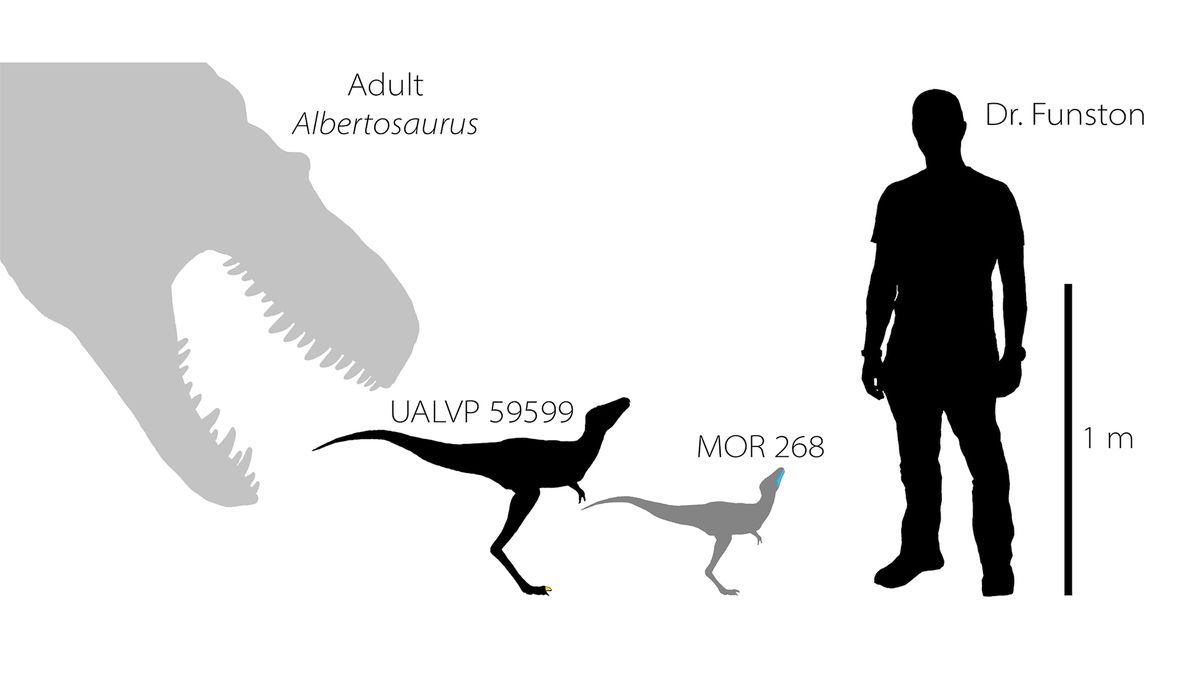
A fossil of what may be a tyrannosaur embryo shows that the gigantic apex predator started out with a skull the size of a mouse.
That conclusion came after the study authors found a toe claw from a baby tyrannosaur in Alberta, Canada in 2017 — which prompted them to analyze  a previously known baby tyrannosaur jawbone, found in Montana in 1983.
"These are incredibly rare finds — the first of their kind in the world," lead researcher Gregory Funston, a paleontologist at the University of Edinburgh in Scotland, told Live Science in an email.
Because it was stuck in the surrounding rock, the researchers scanned the jawbone with a particle accelerator, which let them image the fossil without excavating it.
These features helped convince other paleontologists that the jawbone truly is from a tyrannosaur — "we can know that these features can be used to identify tyrannosaurs no matter how immature they are," Christopher Griffin, a postdoctoral associate in the Department of Earth & Planetary Sciences at Yale University, who wasn't involved with the research but attended the presentation at the conference, told Live Science.
The teeth on the jawbone aren't fully developed, and one tooth in particular offers clues that this fossil might belong to an embryonic tyrannosaur, meaning the tiny tyrannosaur would have died before it had hatched. .
"In one of the tooth sockets, a replacement tooth is being developed, but in an unusual way: Typically, replacement teeth lie directly below the older tooth, and they eat away at the root to release the older tooth," Funston said.
"In our case, the replacement tooth is beside the older tooth, and there's no evidence of root disintegration.
(The toe-claw fossil might also be from an embryo because one surface wasn't fully formed, Funston noted.)Â .
Embryonic fossils are rare, she told Live Science in an email, because "even before they were born, dinosaurs would have been under threat of predation from egg-stealing mammals, and had this baby tyrannosaur hatched, it likely would have had to avoid being eaten by dromaeosaurs (Velociraptor-like dinosaurs), older tyrannosaurs, crocodilians and possibly even giant pterosaurs."Â .